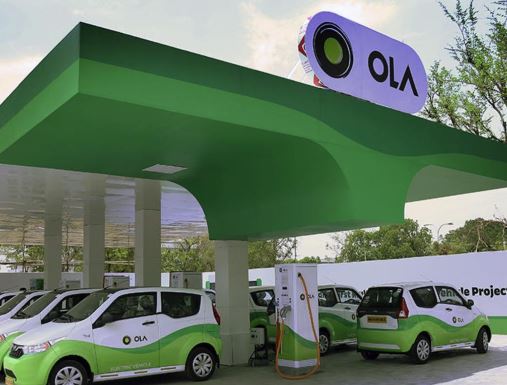According to several sources with knowledge of the situation, the ride-hailing business Ola intends to launch its own electric vehicle (EV) cab service. The pilot program would start in Bengaluru with about 1,000 cabs. Along with standard cabs and auto service, it will be a separate category on the Ola app.
The business eventually intends to increase the number of EV taxis to over 10,000 in the city in a single year.
The service is comparable to BluSmart, an EV ride-hailing firm with headquarters in Gurugram that recently launched operations in Bengaluru. Uber, a competitor of Ola, recently launched a Delhi-based EV cab pilot program.
According to one of the individuals, the company intends to buy automobiles and lease them to drivers who will receive variable pay in addition to a set salary.
As a “premium product,” the service would not feature driver cancellations, which are a common issue for customers in the Indian ride-hailing business. This is the second time Ola is running an EV cab pilot.
In 2017, it provided a comparable service in Nagpur using about 200 EVs in collaboration with the automaker Mahindra. The project was ultimately abandoned.
The news comes as Ola prepares for an initial public offering (IPO), which has been postponed since tech stocks have fallen sharply due to decreased liquidity in international markets. The ride-hailing market, which was regarded as a duopoly prior to the epidemic, was experiencing greater competition from emerging, category-specific competitors like BluSmart as service quality declined along with declining driver income.
The cost of operating an EV is greatly reduced because it costs less than Rs 1 per km to operate one compared to up to Rs 5 for diesel vehicles.
Uber and Ola raised their charges on April 13 of last year as fuel costs crossed the Rs 100 threshold in numerous important Indian cities.
Drivers have stopped using ride-hailing services like Uber and Ola as a result of rising gasoline prices and decreasing incentives from the companies.
The creator of Ola, Bhavish Aggarwal, has asserted that the ride-hailing industry is “very profitable” and “a mature business” in spite of frequent client complaints about falling service quality.
The cost of operating an EV is greatly reduced because it costs less than Rs 1 per km to operate one compared to up to Rs 5 for diesel vehicles.
Uber and Ola raised their charges on April 13 of last year as fuel costs crossed the Rs 100 threshold in numerous important Indian cities.
Drivers have stopped using ride-hailing services like Uber and Ola as a result of rising gasoline prices and decreasing incentives from the companies.
The creator of Ola, Bhavish Aggarwal, has asserted that the ride-hailing industry is “very profitable” and “a mature business” in spite of frequent client complaints about falling service quality.
Governments all throughout the nation are encouraging the electrification of the fleet, with rules favoring EVs even as the tech-driven ride-hailing industry is increasingly being scrutinized for the costs of their services and the remuneration of their drivers.








